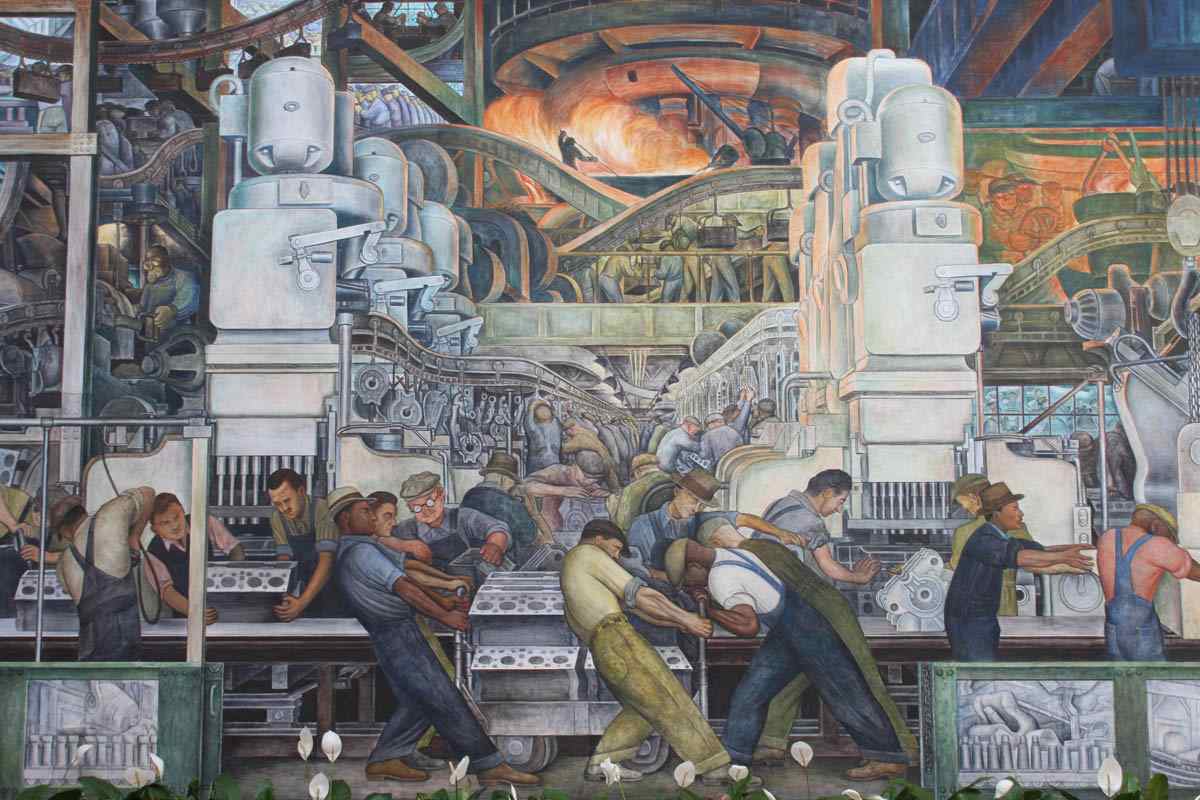Last week I attended the AAAI 2019 Fall Symposium on Artificial Intelligence and Work. The purpose of the two and one-half day symposium in Washington, DC, USA was to collectively create an action plan on how Artificial Intelligence (AI) could contribute to the Future of Work. There has been several conversations about Artificial Intelligence and how it is displacing people from their jobs. Our goal was to shift these conversations and re-think how AI might be used to empower workers. Our workshop was organized by the awesome Larry Medsker and Kevin Crowston.
For this purpose, we first had a series of talks from scholars all over the country who presented on how they are using AI for the Future of Work. We then had discussions on each of these talks, and created teams to collectively work on potential NSF proposals that addressed interesting angles of these talks. I (Saiph) personally gave a talk on how artificial intelligence could be used to help workers produce collective action and build the societies they envision. The slides from my talk are here: Slides.
A few of the other talks included:
*Algorithmic Management and Algorithmic Competencies: Understanding and Appropriating Algorithms in Gig work.
This talk was given by Prof Mohammad Hossein Jarrahi. The talk discussed how algorithms were managing gig workers and how this was leading workers to adopt creative ways of playing the algorithms to gain agency. For instance, Upwork does not allow workers to post their first names to control workers getting visibility outside the platform (e.g., a potential employer might search for them on Bing, find their website or email, and hence end up contacting and hiring them outside Upwork, which is a threat to Upwork as they would not get commissions.) To overcome this problem, workers use social media creatively to engage their potential employers outside the platforms and facilitate that they do find them. Prof Mohammad Hossein Jarrahi talked about the importance of facilitating tools for gig workers that could operate cross gig markets (a type of META-tools that could help workers to manage themselves as they work and operate in different gig markets.)
*Modeling the Future of Workforce Development in the Age of AI.
This talk was given by Prof. Ellen Scully-Russ who discussed how Artificial Intelligence is creating situations where a lot of workers are being left behind. The problem is also that if you can't enter into a lower wage labor market your chances of entering into another career is even lower. Professor Scully-Russ questions then, how do people enter the workforce? The lower level jobs are being taken by machines. The workers who would normally join at the lower level and then scale their way up, now can no longer even join the workforce. What can we do about this situation? This problem is especially aggravated with people of color (Latinos and Blacks are the populations who have the most jobs that have the risk of being automated. When thinking about strategies to address the Future of Work, we need to consider workforce planning models that can take into account that certain entry jobs might be removed, and there is therefore a need to think about plans for inserting people in workforce levels that are higher than what they would normally enter. Another problem that Prof. Ellen Scully-Russ discussed is that workplaces across the world are integrating Artificial Intelligence into their operation. But, we currently do not have a clear idea of how this is affecting people's work, how it is affecting workers, or the overall effect of integrating such technology. We need to think about the best ways in which the community could share results and collectively derive design principles on AI and work.
We also had a great talk from NSF program director Dr. Stephanie Elizabeth August who provided an overview of how NSF views the Future of Work with Artificial Intelligence. NSF is investing 8.1 billion dollars on Artificial Intelligence research. In specific, NSF plans to invest in the creation of centers through which different institutions can work with each other (sharing code, research, data, infrastructure.) In this space, NSF also plans to support research in the domain of work. For this purpose, NSF has created the program of Future of Work at the Human-Technology Frontier: Core Research (FW-HTF). This program focuses on funding research proposals in the domain of work that would not be funded by other solicitations. Most importantly the solicitations for the Future of Work need to consider the three areas of: technlogy for work, the life of the worker, and the context of work. You need to have research questions for these three areas.
Overall, I really enjoyed the symposium and felt excited about building and transforming the future of work.
